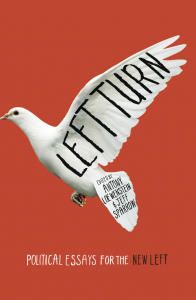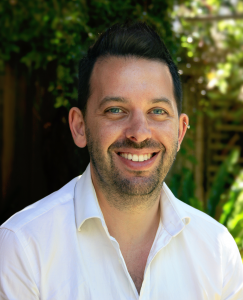Bio & Contact
Antony Loewenstein is a Middle East based, Australian independent freelance journalist, author, documentarian and blogger. He has written for the The Guardian, New York Times, Washington Post, New Statesman, Al Jazeera, Huffington Post, Salon, The Daily Star, Le Monde Diplomatique English, Foreign Policy, The National, The Independent, Electronic Intifada, Al Akhbar English, Dawn, Haaretz, The Nation, New Internationalist, Sydney Morning Herald, The Australian, Los Angeles Review of Books, BBC World Service, Adbusters, Al Masry Alyoum, Juan Cole, Mondoweiss, Tehelka, Open Democracy, Sydney’s Sun-Herald, New Zealand Herald, Sydney Ideas Quarterly, The Australian Financial Review, Crikey, Melbourne’s Age, Brisbane’s Courier Mail, Canberra Times, Online Opinion, New Matilda, The Conversation, ABC Unleashed/The Drum, Amnesty International Australia, Green Left Weekly, Eureka Street, Kill Your Darlings, Tikkun, Adelaide’s Advertiser, The Bulletin, Znet, Overland, Sydney PEN, The Big Issue, Counterpunch and many others.
He’s a contributor to The Guardian.
Antony contributed a major chapter to 2004’s Australian best-seller, Not Happy, John! on the Middle East.
His best-selling book on the Israel/Palestine conflict, My Israel Question, was released by Melbourne University Publishing in 2006. A new, updated edition was released in 2007 (and reprinted again in 2008). The book was short-listed for the 2007 New South Wales Premier’s Literary Award. Another fully updated, third edition was published in 2009. It was released in all e-book formats in 2011. An updated and translated edition was published in Arabic in 2012.
He was a contributor to the 2008 Verso Books release, A Time to Speak Out: On Israel, Zionism and Jewish Identity.
His second book, The Blogging Revolution, on the internet in repressive regimes, was released in 2008 by Melbourne University Publishing, an updated edition in 2011, post the Arab revolutions, and an updated Indian print version in 2011.
His 2010 ABC Radio National feature documentary, A Different Kind of Jew, was a finalist in the UN Media Peace Awards.
He is a contributor to the 2011 book My Favourite Teacher, published by NewSouth. He has a chapter in the 2011 book, On Utøya: Anders Breivik, right terror, racism and Europe, on the nexus between Israel and the Right.
He’s the co-editor, with Ahmed Moor, of After Zionism in 2012. A collection of the world’s leading writers and thinkers on the Israel/Palestine conflict, the book outlines how the one-state solution can be achieved in the Middle East.
He is the co-editor, with Jeff Sparrow, of Left Turn in 2012. Featuring some of Australia’s leading progressive voices, the collection provides an alternative view on #Occupy, unions, Palestine, the media, war, climate change and other vital issues.
He is a contributor to the 2012 collection, Loving This Planet, edited by Helen Calcidott and published by The New Press, on the importance of Wikileaks.
He’s co-author of the 2013 book For God’s Sake, via Pan Macmillan, on the role of religion, faith and politics in society.
He released in 2013 the best-selling book Profits of Doom, released in an updated edition in 2014, including a photography exhibition, about vulture capitalism and privatisation in Afghanistan, Pakistan, Papua New Guinea, Haiti, Australia, the Asia-Pacific, the “war on terror” and beyond.
In 2015 he released a major new book, Disaster Capitalism: Making A Killing Out Of Catastrophe, out with Verso Books. It’s out in paperback in January 2017.
He’s making a documentary with New York based film-maker Thor Neureiter, Disaster Capitalism, about aid, development and politics in Afghanistan, Haiti and Papua New Guinea. It was selected for the prestigious 2016 Hot Docs film festival.
He was a Research Associate at the University of Technology Sydney’s Australian Centre for Independent Journalism and is a current Associate at Sydney University’s Sydney Democracy Institute. In 2016 he was a Visiting Researcher in the Global Governance Research Unit at WZB, Berlin’s Social Science Centre. He sits on the advisory council of the British-based Sri Lanka Campaign for Peace and Justice. He is the co-founder of advocacy group Independent Australian Jewish Voices and contributed to Amnesty International Australia’s 2008 campaign about Chinese internet repression and the Beijing Olympic Games.
Antony appears regularly around the world on radio (including the BBC), TV (including Al Jazeera English, Democracy Now! and ABC News24), in public, writer’s festivals (in Australia and overseas such as Indonesia, India, South Africa and New Zealand) and at universities (including Harvard) discussing current affairs, politics and media.
Email: antloew@gmail.com

 Vulture capitalism has seen the corporation become more powerful than the state, and yet its work is often done by stealth, supported by political and media elites. The result is privatised wars and outsourced detention centres, mining companies pillaging precious land in developing countries and struggling nations invaded by NGOs and the corporate dollar.
Best-selling journalist Antony Loewenstein travels to Afghanistan, Pakistan, Haiti, Papua New Guinea and across Australia to witness the reality of this largely hidden world of privatised detention centres, outsourced aid, destructive resource wars and militarized private security. Who is involved and why? Can it be stopped? What are the alternatives in a globalised world?
Vulture capitalism has seen the corporation become more powerful than the state, and yet its work is often done by stealth, supported by political and media elites. The result is privatised wars and outsourced detention centres, mining companies pillaging precious land in developing countries and struggling nations invaded by NGOs and the corporate dollar.
Best-selling journalist Antony Loewenstein travels to Afghanistan, Pakistan, Haiti, Papua New Guinea and across Australia to witness the reality of this largely hidden world of privatised detention centres, outsourced aid, destructive resource wars and militarized private security. Who is involved and why? Can it be stopped? What are the alternatives in a globalised world? 

 The 2008 financial crisis opened the door for a bold, progressive social movement. But despite widespread revulsion at economic inequity and political opportunism, after the crash very little has changed.
Has the Left failed? What agenda should progressives pursue? And what alternatives do they dare to imagine?
The 2008 financial crisis opened the door for a bold, progressive social movement. But despite widespread revulsion at economic inequity and political opportunism, after the crash very little has changed.
Has the Left failed? What agenda should progressives pursue? And what alternatives do they dare to imagine?
 The Blogging Revolution, released by
The Blogging Revolution, released by  The best-selling book on the Israel/Palestine conflict,
The best-selling book on the Israel/Palestine conflict, 